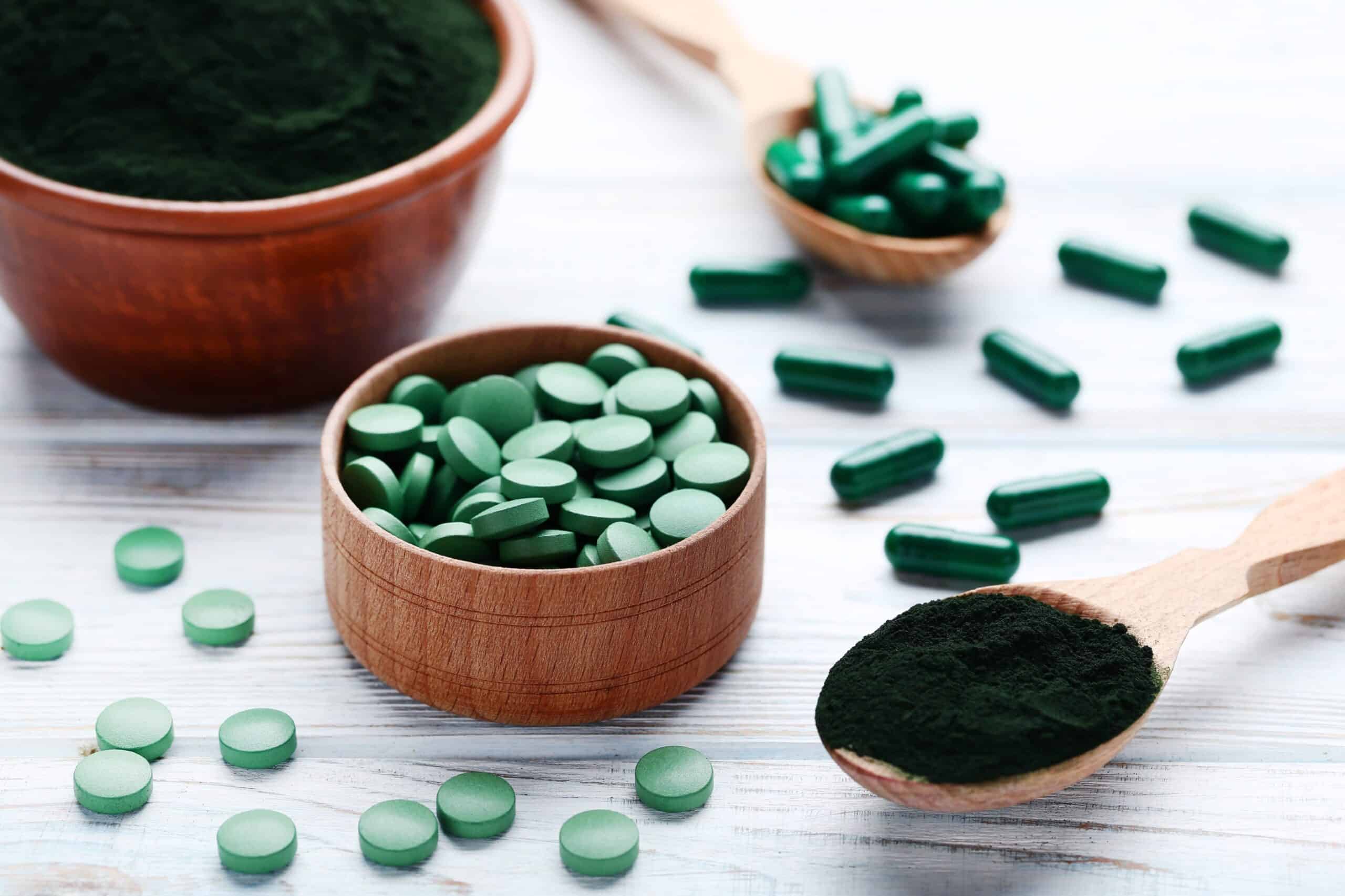Here are the health benefits of spirulina:
It has antioxidant and anti-inflammatory properties
Oxidative stress can harm your DNA and cells, which can cause chronic inflammation that can contribute to cancer and other diseases. Spirulina is a good source of antioxidants that protects one against oxidative damage. The antioxidant called phycocyanin also gives spirulina its blue-green colour. Phycocyanin can fight free radicals and inhibit the production of inflammation signaling molecules.
Can help lower bad cholesterol and triglyceride levels
Heart disease is one of the major leading causes of death all over the world. Spirulina can help lower your risk of heart disease by lowering bad cholesterol and triglyceride levels. Not just this, it also increases your good cholesterol levels. In a study of people with high cholesterol levels, 1 gram of spirulina per day lowered triglyceride levels by 16.3 percent and bad LDL by 10.1 percent.
Can help control type 2 diabetes
Spirulina is great for people suffering from type 2 diabetes. In a study of 25 people with type 2 diabetes, 2 grams of spirulina per day significantly improved these markers.
Has anti-cancer properties
There is evidence that suggests that spirulina has anti-cancer properties. Studies conducted on animals indicate that spirulina can reduce cancer occurrence and tumour size. Spirulina’s effect on oral cancer has been particularly well studied. A study examined 87 people from India with precancerous lesions, also called oral submucous fibrosis in the mouth. For people who took 1 gram spirulina per day for one year, 45 percent saw lesions disappear as compared to only 7 percent in the control group. When these people stopped taking spirulina, almost half of them redeveloped lesions in the following year.
Can help reduce blood pressure
High blood pressure if not treated on time can lead to various serious diseases like heart attacks, strokes, and chronic kidney disease. 4.5 grams of spirulina per day has been shown to reduce blood pressure. The reduction in blood pressure is driven by increased production of nitric oxide, a signaling molecule that helps your blood vessels relax and dilate.
It may be effective against anaemia
They are different types of anaemia. The most common one is characterized by a reduction in the haemoglobin or red blood cells in the blood. Anaemia is common in adults and can lead to a feeling of weakness and fatigue. In a study of 40 people with a history of anaemia, spirulina supplements increased the haemoglobin content of red blood cells and also improved immune function.
Improves muscle strength and endurance
Exercise can cause oxidative damage, which contributes to muscle fatigue. Certain foods have antioxidants properties that can help athletes and physically active people minimize the damage. Spirulina appears beneficial as some studies have pointed to improved muscle strength and endurance. It enhances endurance and increases the time it took for people to become fatigued.
How much spirulina you can consume in a day
A study conducted in February 2016 and published in the Journal of Nutrition Research recommends consuming around 4 grams of spirulina per day. However, it is possible to safely consume around 7 grams per day but one should not consume more than 15 grams per day.




